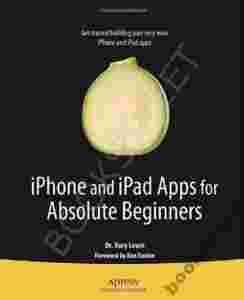The iPhone is the hottest gadget of our
generation, and much of its success has been fueled by
the App Store, Apple’s online marketplace for iPhone
applications. Over 1 billion apps have been downloaded
in the 9 months the App Store has been open, ranging
from the simplest games to the most complex business
apps. Everyone has an idea for the next best-selling
iPhone app—presumably that’s why you’re reading this
now. And with the release of the iPad, this demand will
just continue to grow.
So how do you build an
application for the iPhone and iPad? Don’t you need to
spend years learning complicated programming languages?
What about Objective-C, Cocoa Touch, and the software
development kit (SDK)? The answer is that you don’t need
to know any of those things. Anybody can start building
simple applications for the iPhone and iPad, and this
book will show you how.
This book takes you to
getting your first applications up and running using
plain English and practical examples. It cuts through
the fog of jargon and misinformation that surrounds
iPhone and iPad application development, and gives you
simple, step-by-step instructions to get you
started.
- Teaches iPhone and iPad application development in
language anyone can understand
- Provides simple, step-by-step examples that make
learning easy
- Offers videos that enable you to follow along with
the author—it’s like your own private classroom
What you’ll learn
- Get both yourself and your computer set up for
iPhone and iPad application development.
- Start by making small changes to existing
applications to build your knowledge and experience
before creating your own applications.
- Follow steps in plain English to build simple apps
and get them working immediately.
- Style your application so that it looks good and
users can easily navigate through it.
- Make use of the iPhone’s touch screen and
accelerometer.
- Use shortcuts and cheat sheets to create apps the
easy way.
Who this book is for
If you have a great
idea for an iPhone or iPad app, but have never
programmed before, then this book is for you. You don’t
need to have any previous computer programming skills—as
long as you have a desire to learn, and you know which
end of the mouse is which, you’ll be fine.
Table of Contents
- Before We Get Started
- Blast-Off!
- What’s Next?
- An Introduction to the Code
- Buttons & Labels with Multiple Graphics
- Switch View with Multiple Graphics
- Dragging, Rotating, and Scaling
- Table Views, Navigation, and Arrays
- MapKit

